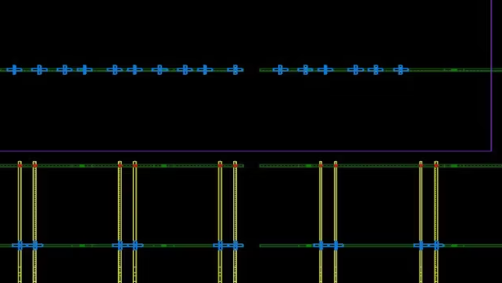NEW YORK –– May 18, 2010 –– The IEEE Council on Electronic Design Automation (CEDA) today announced that it will present four achievement awards during the opening session of the 47th Design Automation Conference (DAC) Tuesday, June 15, at the Anaheim Convention Center in Anaheim, Calif.
The first IEEE CEDA Distinguished Service Award will be given to Professor Giovanni de Micheli, director of the Integrated Systems Centre at École Polytechnique Fédérale de Lausanne (EPFL), Alfred E. Dunlop of Crossbow Consulting and Dick Smith, now retired. The three are being recognized for their efforts to create CEDA. The new award, to be given annually, honors volunteers and contributors who have performed outstanding service to the benefit and advancement of CEDA.
“Al, Nanni, and Dick worked tirelessly to manage the complex IEEE organization to implement their vision for an EDA-focused entity in the largest engineering organization of the world,” says Andreas Kuehlmann, CEDA’s president and Cadence fellow and director of Cadence Research Laboratories. “The EDA community owes them a debt of gratitude for their efforts.”
This year’s A. Richard Newton Technical Impact Award, awarded jointly by CEDA and the ACM Special Interest Group on Design Automation (SigDA), will be given to Dr. Randal E. Bryant, Dean and University Professor of the School of Computer Science at Carnegie Mellon University. The award, intended for contributors whose impact is recognized over a significant period of time, recognizes Dr. Bryant for developing Reduced Ordered Binary Decision Diagrams.
Dr. Bryant will be given the Phil Kaufman Award, presented by CEDA and the Electronic Design Automation Consortium, during the session.
Finally, CEDA will recognize the recent elevation of Professor Andrew B. Kahng from the University of California at San Diego to the prestigious member grade of IEEE Fellow. He will be honored for his contributions to the design for manufacturability of integrated circuits and the technology roadmap of semiconductors.
It gives me a great deal of pleasure to announce this year’s award winners,” says Professor Donatella Sciuto of Politecnico di Milano and president-elect of CEDA. “Each has devoted countless hours to the betterment of the EDA industry through a variety of scientific activities.”
About the IEEE Council on EDA
The IEEE Council on Electronic Design Automation (CEDA) provides a focal point for EDA activities spread across six IEEE societies (Antennas and Propagation; Circuits and Systems; Computer; Electron Devices; Microwave Theory and Techniques; and Solid State Circuits). It sponsors more than 12 conferences, including the Design Automation Conference (DAC), the International Conference in CAD (ICCAD) and Design Automation and Test in Europe (DATE). CEDA publishes IEEE Transactions on CAD and the IEEE Embedded Systems Letters. CEDA is increasingly involved in recognizing its leaders via the A. Richard Newton Award, Early Career Award and Phil Kaufmann Award. CEDA welcomes volunteers and local chapters. For more details, visit: www.c-eda.org.





7 thoughts on “IEEE’s Council on EDA to Present Four Achievement Awards During DAC”